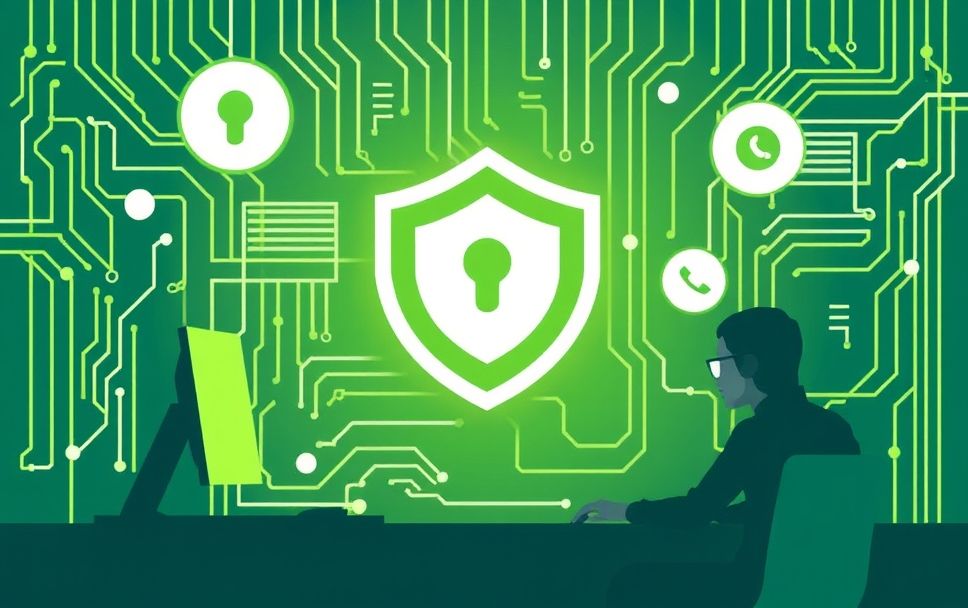The Definitive Glossary on Cybersecurity Jobs
In an increasingly digital world, cybersecurity jobs have emerged as a crucial aspect of protecting sensitive information and maintaining the integrity of systems. This comprehensive guide will explore the various facets of cybersecurity jobs, their significance, and how they relate to the ever-evolving field of artificial intelligence (AI).
Understanding Cybersecurity Jobs
Cybersecurity jobs encompass a wide range of roles focused on safeguarding computer systems, networks, and data from cyber threats. These positions can vary from technical roles, such as penetration testers, to strategic roles, such as cybersecurity analysts and managers. The importance of cybersecurity has surged with the rise of cyberattacks and data breaches, making these jobs vital for organizations across all sectors.
Types of Cybersecurity Jobs
There are several distinct types of cybersecurity jobs, each with unique responsibilities and skill requirements:
- Security Analyst: Focuses on monitoring and protecting an organization’s networks and systems.
- Penetration Tester: Simulates cyberattacks to identify vulnerabilities in systems.
- Security Engineer: Designs and implements secure network solutions to protect against cyber threats.
- Incident Responder: Manages and mitigates the impact of security breaches.
- Chief Information Security Officer (CISO): Oversees the organization’s information security strategy and implementation.
Each of these roles plays a vital part in the larger framework of cybersecurity, ensuring that organizations can defend themselves against a myriad of cyber threats.
Essential Skills for Cybersecurity Jobs
To succeed in cybersecurity jobs, professionals must possess a combination of technical and soft skills. Here are some key competencies:
- Technical Skills:
- Knowledge of firewalls, VPNs, IDS/IPS, and other security technologies.
- Understanding of networking protocols and security principles.
- Proficiency in programming languages such as Python, Java, or C++.
- Soft Skills:
- Critical thinking and problem-solving abilities.
- Communication skills for conveying complex concepts to non-technical stakeholders.
- Attention to detail when assessing security measures.
These skills are not only essential for executing day-to-day tasks but also for adapting to the fast-paced changes in the cybersecurity landscape, especially with the integration of AI technologies.
Applications of Cybersecurity Jobs in the Age of AI
The integration of artificial intelligence into cybersecurity practices has redefined the landscape of cybersecurity jobs. Here are some practical applications:
- Threat Detection: AI can analyze vast amounts of data to identify patterns and anomalies that may indicate a cybersecurity threat.
- Automated Responses: AI systems can respond to incidents in real-time, mitigating damage without human intervention.
- Predictive Analysis: By analyzing historical data, AI can predict potential vulnerabilities and threats, allowing organizations to proactively strengthen their defenses.
As the field of AI continues to evolve, cybersecurity professionals must stay ahead by integrating these technologies into their strategies effectively.
How to Prepare for a Career in Cybersecurity
For those interested in pursuing a career in cybersecurity, here are actionable steps to get started:
- Education: Obtain a degree in computer science, information technology, or a related field.
- Certifications: Acquire relevant certifications such as Certified Information Systems Security Professional (CISSP), Certified Ethical Hacker (CEH), or CompTIA Security+ to enhance your qualifications.
- Hands-On Experience: Engage in internships or entry-level positions to gain real-world experience.
- Networking: Join professional organizations and attend cybersecurity conferences to build connections in the industry.
By following these steps, aspiring cybersecurity professionals can lay a solid foundation for a successful career.
Related Concepts in Cybersecurity
Cybersecurity jobs are interconnected with several other concepts, enriching the understanding of professionals in the field:
- Information Security: A broader field that encompasses the protection of information assets.
- Network Security: Focuses specifically on protecting networks from unauthorized access and threats.
- Data Privacy: Involves safeguarding personal data and ensuring compliance with regulations.
Understanding these related concepts can provide a more comprehensive view of the cybersecurity landscape.
Conclusion: The Importance of Cybersecurity Jobs
As the digital landscape continues to evolve, the demand for cybersecurity professionals is stronger than ever. Cybersecurity jobs not only protect organizations from cyber threats but also play a critical role in maintaining public trust in technology. By understanding the various roles, required skills, and practical applications of cybersecurity jobs, individuals can effectively prepare for a rewarding career in this essential field.
Engage with the content by exploring your own path into cybersecurity. Are you ready to take the next step?









